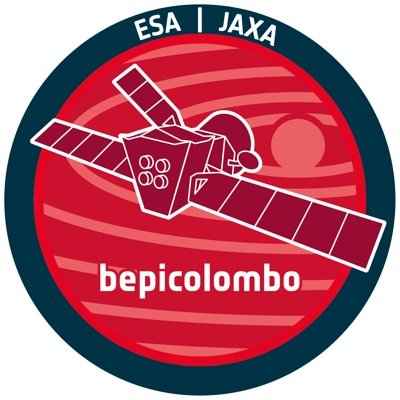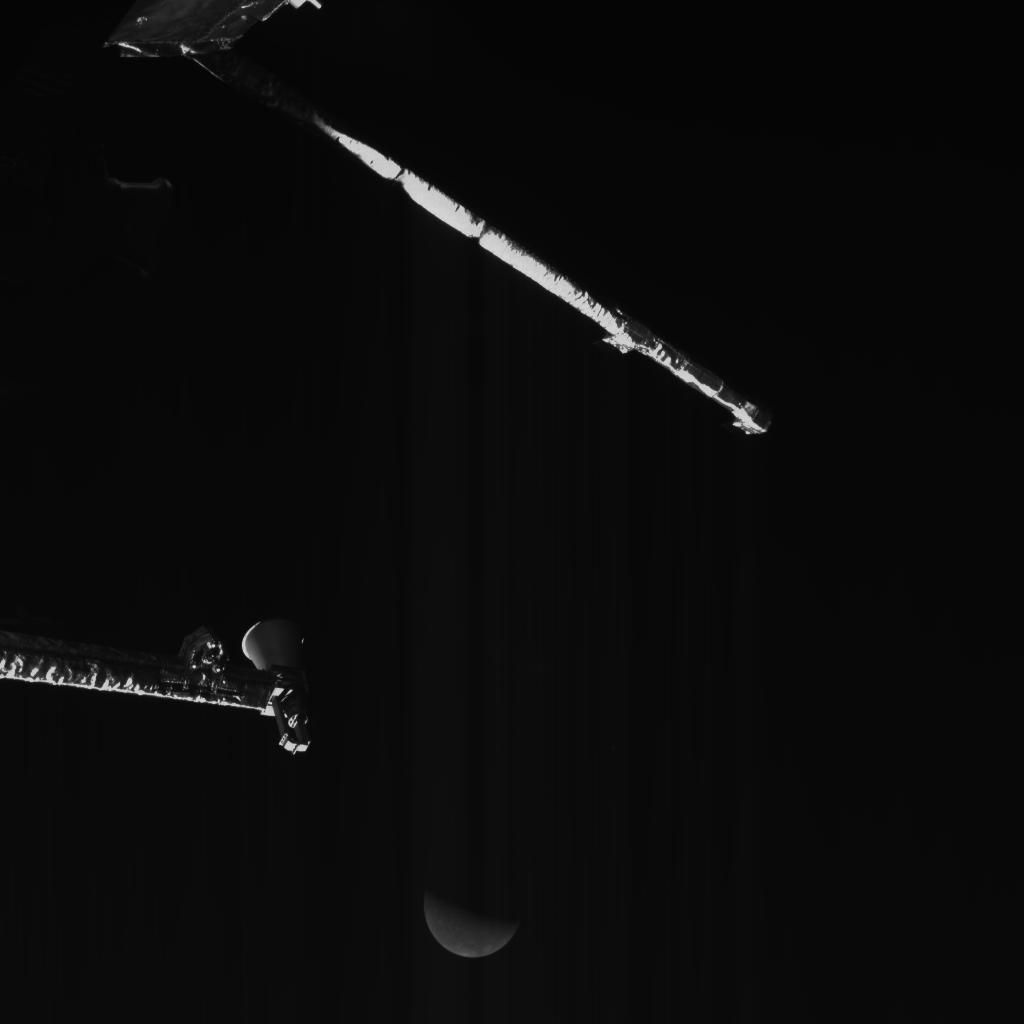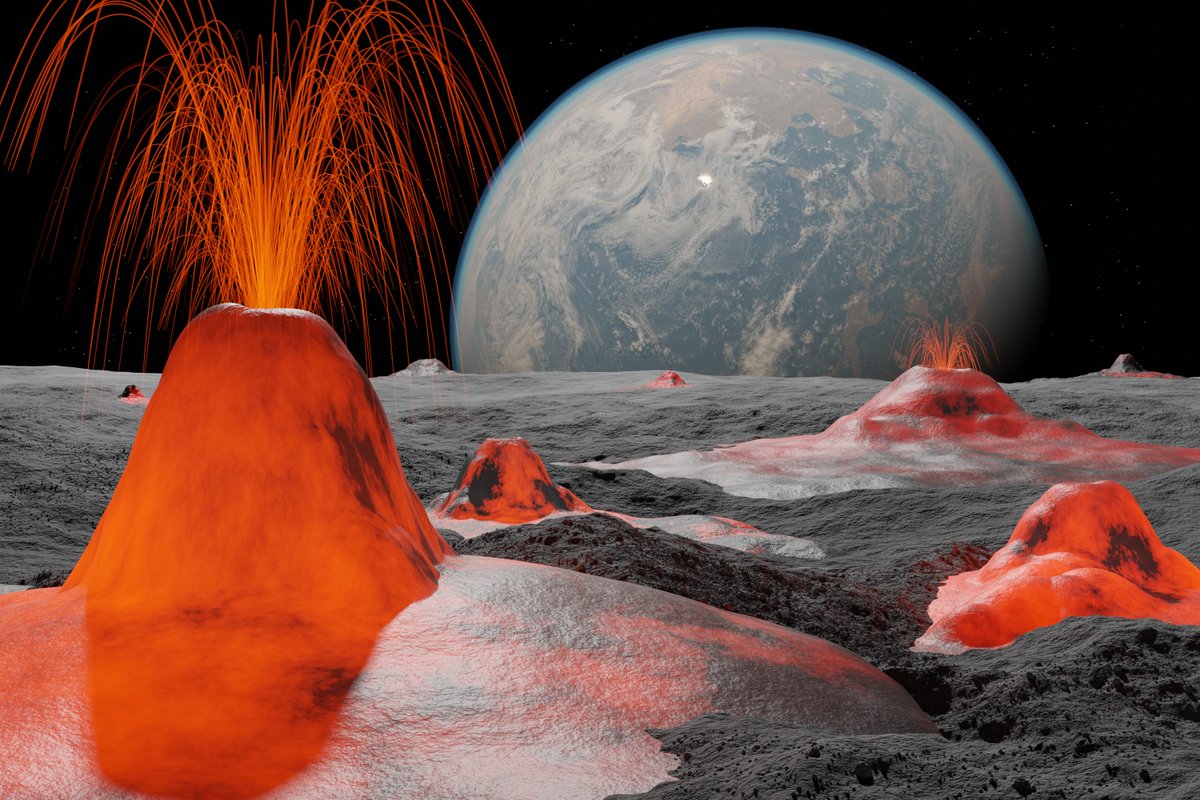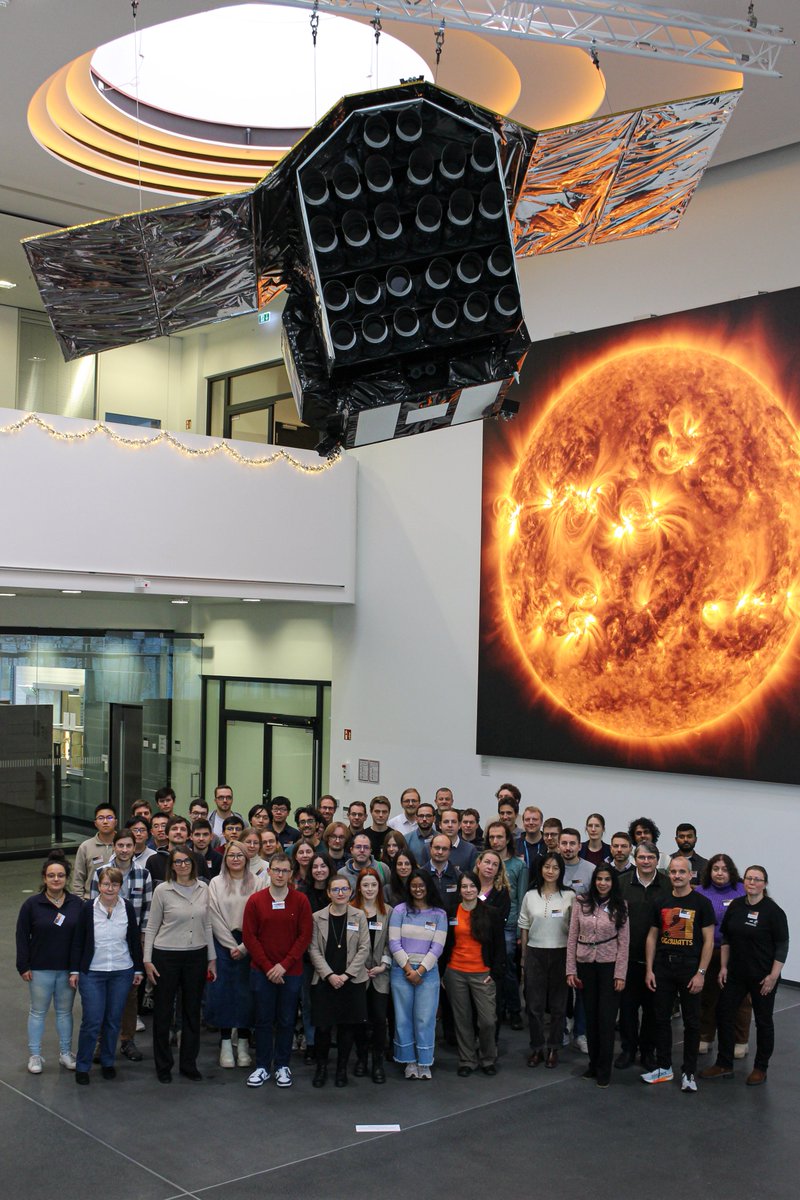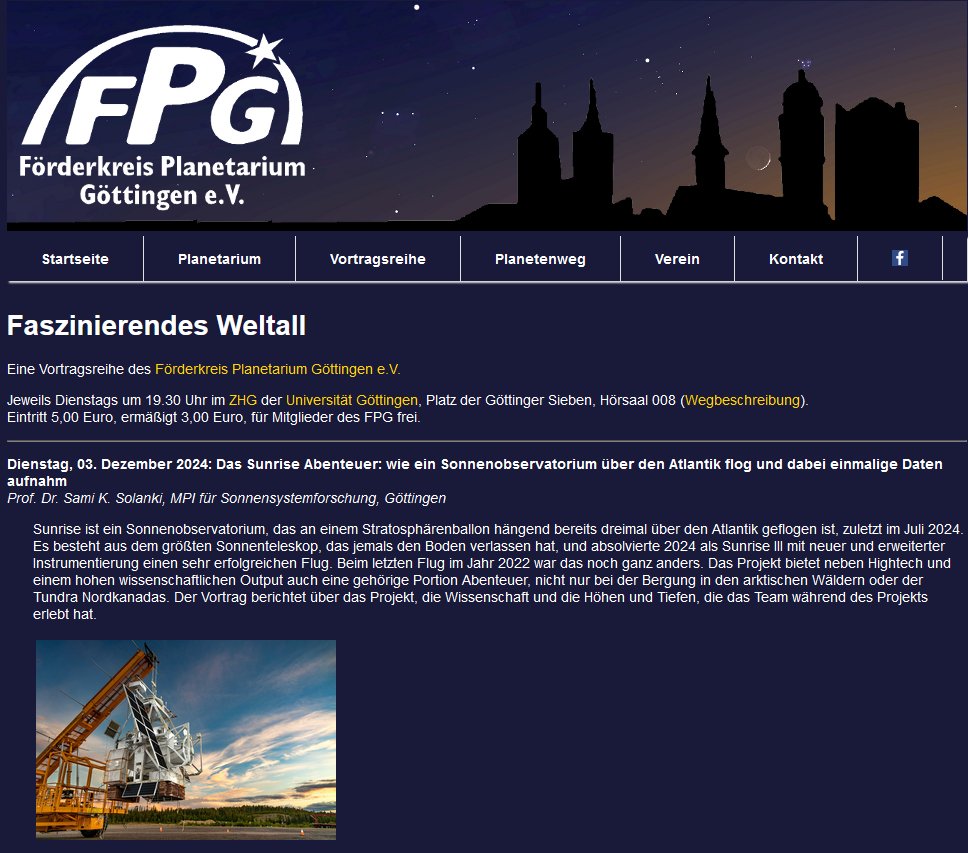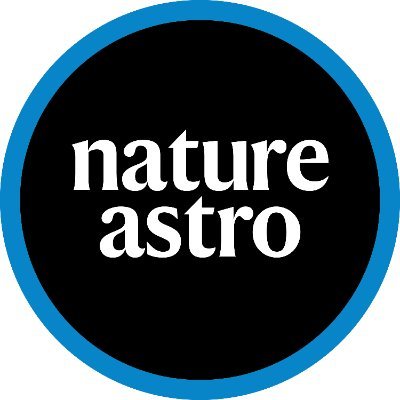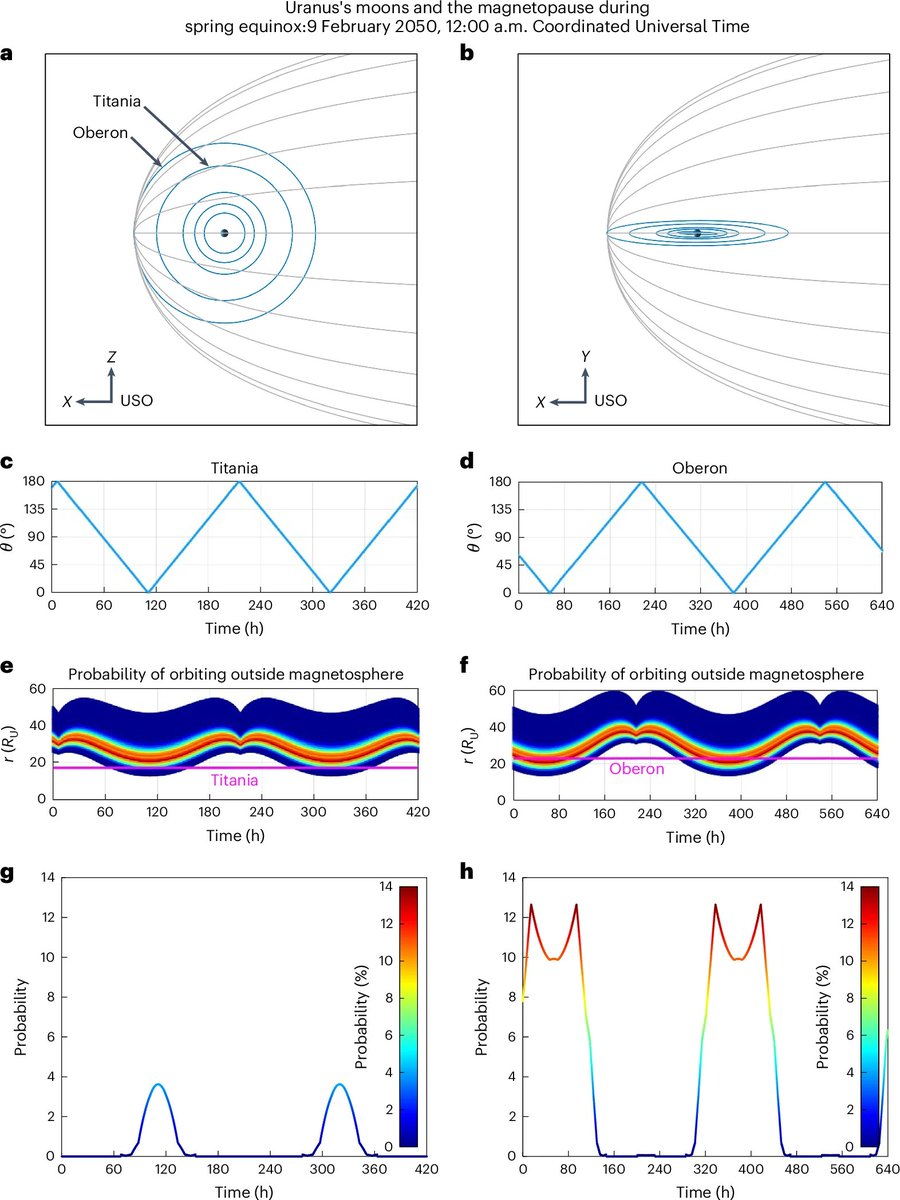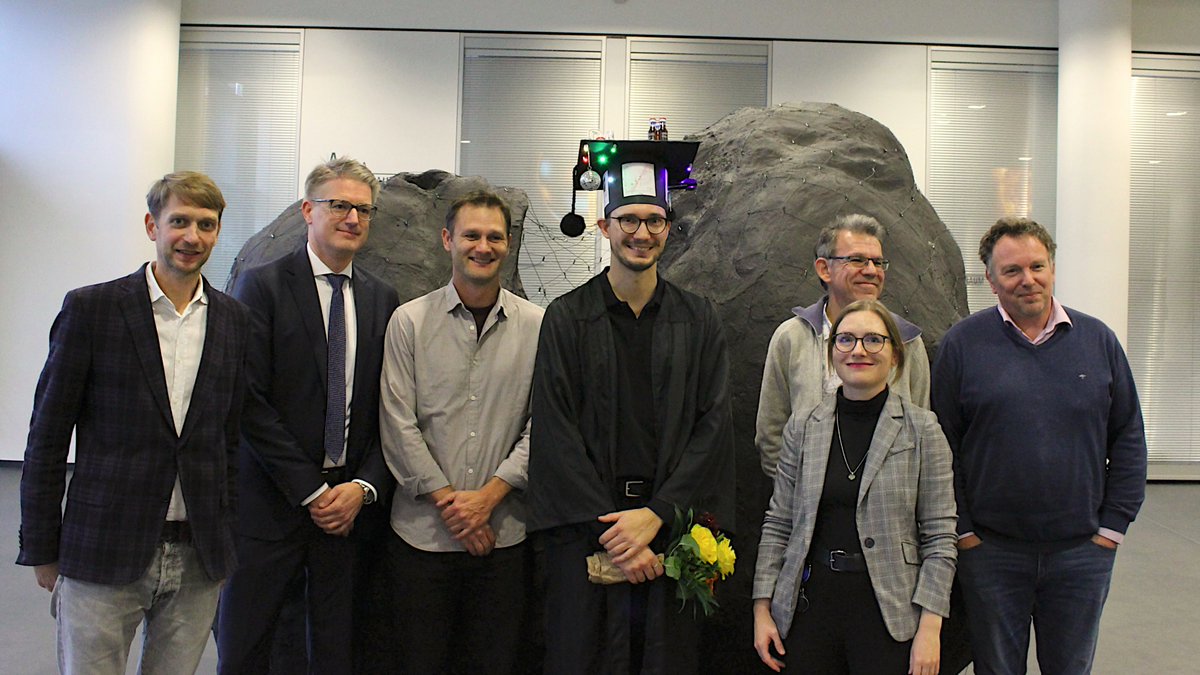
Max Planck Institute for Solar System Research
@MPSGoettingen
Followers
2K
Following
4K
Media
289
Statuses
1K
Max Planck Institute for Solar System Research: Cutting edge scientific research on our Sun, the planets and their moons, asteroids and comets. Tweets in en/de.
Göttingen, Germany
Joined January 2019
RT @miriamrengel: Excited to share our discovery! 🔭We observed extremely powerful winds pummeling the equator of the exoplanet WASP-127b. I….
0
4
0
RT @idw_online_de: Der #Mond ist der #Erde ähnlicher als gedacht: Ein Forschungsteam der @uniGoettingen und des @MPSGoettingen hat neue Erk….
0
1
0
Together with #Huygens, hardware from #MPSGoettingen made its way to the surface of #Titan. We contributed the CCD detector and associated operation electronics to the instrument #DISR – and thus helped to take the first and to date only pictures from the surface of an icy moon.
On 14 January 2005, ESA’s #Huygens probe made history as it touched down on Titan, Saturn’s largest moon. This was humanity's first successful landing on a world in the outer Solar System. Relive those moments with this narrated video done with Huygens data.
0
2
9
This year’s public lecture series at #MPSGoettingen will be devoted to #Earth and its cosmic next of kin: the inner #planets #Mercury, #Venus and #Mars. Find more info here: All lectures in German. See you there! #innerplanets @thegoecampus
0
2
8
All scientific instruments to which #MPSGoettingen has contributed i.e. #BELA, #MIXS, #SERENA and #MPPE are switched on during flyby and we’re looking forward to cool new data. #bepicolombo #Mercury #Flyby.
Here's an image taken 5.5 hours before closest approach, when #bepicolombo was 44950 km from Mercury's southern hemisphere. The planet is at the bottom of the picture, below two of the spacecraft's booms.
0
2
8
In the current episode of the German TV Show “Spacetime” devoted to planetary #atmospheres, #MPSGoettingen scientist Paul Hartogh speaks about the gas layers surrounding #Earth, #Venus and #Mars as well as the search for life on #exoplanets: In German.
0
1
3
Millions of years after formation, the Moon’s immense volcanic activity reheated its crust. As scientists from @ucsantacruz, #MPSGoettingen and @cdf1530 argue today in @Nature, the Moon is at least 4.43 billion years old, but its crust is younger. More:
0
3
5
RT @SWI_JUICE: 2024 was tense and successful with the SWI cruise phase operations PCW01, PCW02 and LEGA!.Looking forward to 2025 operations….
0
2
0
RT @Sunrise_III: Watch #Sunrise_III’s unique research flight in the #stratosphere as seen by the onboard cameras provided by the #IRIS-2 pr….
0
11
0
RT @Sunrise_III: Today, #Sunrise_III shares its 1st images of the #Sun! Read more here: .@iaa_csic @prcnaoj_en #KIS….
0
37
0
Read more about our research into #superflares in the New York Times!.
New findings suggest that an extraordinarily powerful and dangerous burst of radiation might flare from our sun in the future.
4
0
3
What a blast! #Sun-like stars produce a #superflare on average about once every century per star, a research team led by #MPSGoettingen shows in today’s issue of @sciencemagazine. More here: @UniGraz @UniOulu @prcnaoj_en @CUBoulder @unipariscite
0
5
18
Congratulations, #Proba3, and have a safe trip! Looking forward to a unique formation flight – and to new data from the #Sun. #MPSGoettingen has developed software for the mission’s scientific data analysis and will use the data to learn more about the solar #corona.
0
0
7
Today saw the last day of the 14th meeting on “(Exo)Planet Diversity, Formation and Evolution” at #MPSGoettingen. Thanks for three days full of talks, discussions, and new insights! #exoplanets #planets #stars
0
1
12
RT @ForumWissenGoe: Let the sun shine in!🌞.Die neue Ausstellung #Sonnenansichten gibt Einblicke in die Sonnenforschung. Im Fokus: Ein Film….
0
3
0
Tonight, #MPSGoettingen Director Sami Solanki reports on @Sunrise_III’s adventurous flight across the Atlantic. At 7.30 PM in @uniGoettingen's ZHG. In German. The talk is part of the series “Faszinierendes Weltall” of the Förderkreis Planetarium Göttingen.
0
2
4
During its #Uranus flyby in 1986, @NASAVoyager 2 encountered a haywire #magnetosphere due to unusual solar wind conditions. Read more about the new analysis of the 38 year old data here:
A reanalysis of the 1986 Voyager 2 flyby of Uranus shows that it occurred during an extreme compression of the planet’s magnetosphere by the solar wind. This would have had significant effects on the measurements made during the flyby. @spaceJamieJ et al.:
0
0
2
Two insights into solar research at @MPSGoettingen on German TV today! At 6.30 PM, the science show #3sat NANO will report on the @Sunrise_III mission: A bit later at 6.45 PM, MPS-Director Sami Solanki will be live on the show DAS!
1
1
12
#PhDCongratulations! 🥳Fridolin Spitzer of the #IMPRS “Solar System School” successfully defended his PhD thesis “The onset of planet formation inferred from isotope anomalies in meteorites” today!.@uniGoettingen.@thegoecampus
0
2
19




